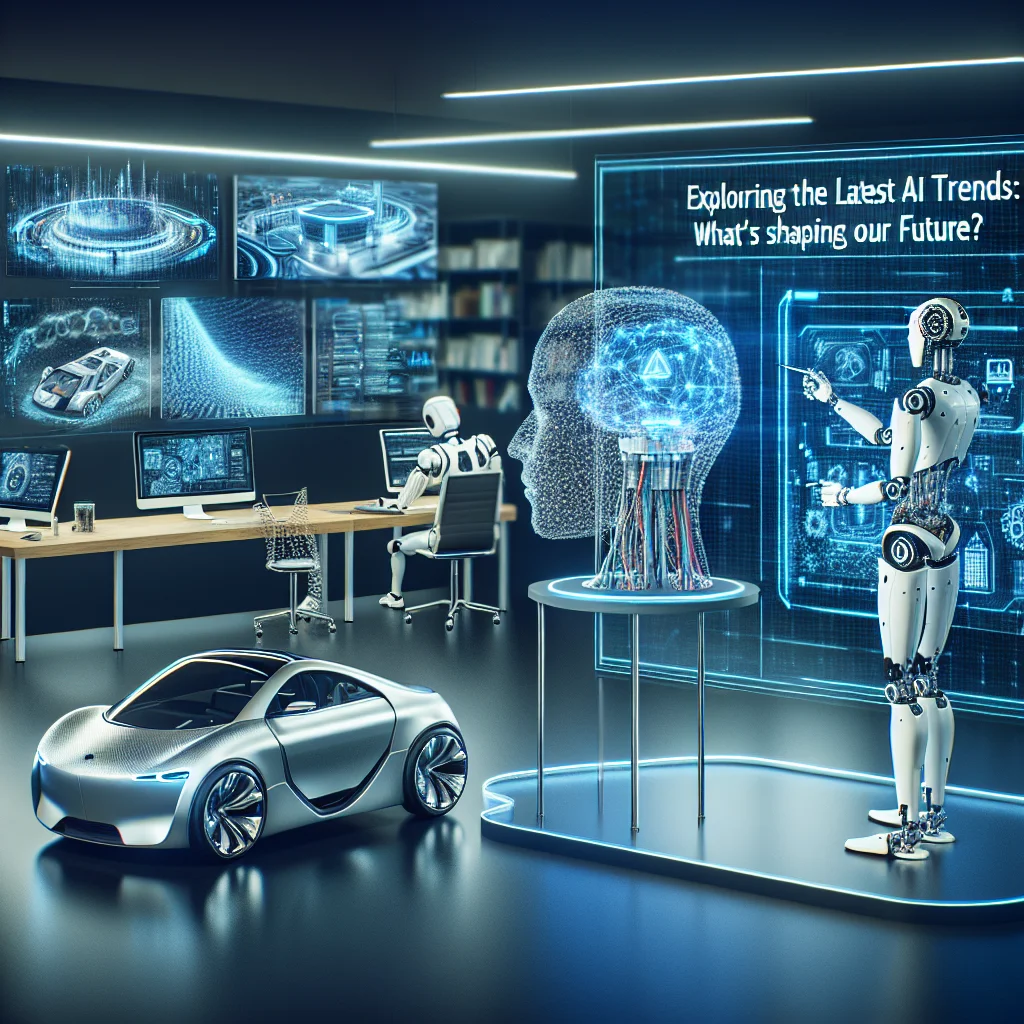Exploring the Latest AI Trends: What’s Shaping Our Future?
March 17, 2025

Artificial Intelligence (AI) has rapidly transitioned from a niche subject of fascination into a fundamental part of our everyday lives. As we step into 2025, the importance of AI is more evident than ever, influencing various sectors such as healthcare, finance, and transportation. In this article, we'll explore the latest AI trends, their practical applications, insights from industry experts, and what it all means for the future.
What Are the Latest Trends in AI?
AI technology is continuously evolving, with several key trends coming to the forefront in 2025. One significant trend is the rise of generative AI, which enables machines to create content, from artwork to complex programming code, based on the data they learn from. This technology is transforming creative industries and altering workflows across various sectors.
Another trend is the integration of AI with edge computing. By processing data closer to its source rather than relying solely on centralized cloud servers, organizations can achieve faster data processing times and enhance real-time decision-making capabilities. This trend is crucial for industries like manufacturing and autonomous vehicles.
Additionally, there's a growing emphasis on ethical AI. With increasing capabilities, there's an urgent need to address biases in AI systems, ensuring they operate fairly and responsibly. Companies are investing in frameworks to audit AI algorithms for biases, leading to more transparency and trust in AI applications.
Practical Applications of AI Across Industries
AI's applications are diverse and impactful, shaping how businesses operate in 2025. In healthcare, AI is being utilized for predictive analytics, helping professionals identify potential health issues before they become critical. For instance, AI systems analyze patient data to forecast disease outbreaks and suggest proactive treatment options.
In finance, AI algorithms are streamlining operations, enhancing fraud detection, and personalizing customer experiences. Robo-advisors, powered by AI, are providing tailored investment strategies, making financial advice more accessible to individuals.
Moreover, in the realm of transportation, AI is paving the way for safer, more efficient travel. Companies are deploying AI-powered traffic management systems that analyze real-time traffic patterns, optimizing routes and reducing congestion. Additionally, advancements in AI are propelling the development of autonomous vehicles, promising a future where self-driving cars may become the norm.
Insights from AI Thought Leaders
To gain deeper insights into the future of AI, we spoke with industry experts about emerging trends. Dr. Laura Jeffries, a prominent AI researcher, emphasizes the significance of continuous learning in AI models. "As we uncover new data, it's essential that our AI systems adapt accordingly to avoid obsolescence," she notes. This viewpoint highlights how adaptive learning will be paramount for ongoing AI development.
Daniel Chen, a tech entrepreneur, adds that collaboration between humans and AI will define the future workforce. "Instead of replacing jobs, AI will augment human capabilities, allowing for more creative and strategic endeavors," he explains. This sentiment echoes the belief that AI will create opportunities for workforce innovation rather than job displacement.
How Can Businesses Leverage These Trends?
As businesses witness the rapid integration of AI technologies, understanding how to leverage these trends is critical. For organizations looking to implement AI solutions, starting small with pilot projects is advisable. Assessing the impact of AI on specific tasks can provide valuable insights and a clear direction for scaling up operations.
In addition, training staff on AI technologies is vital. Empowering employees with the knowledge and tools they need to work alongside AI systems will enhance productivity and foster an innovative workplace culture.
Moreover, businesses should prioritize ethical considerations in their AI implementations. Building transparent AI systems that undergo regular bias audits can establish consumer trust and enhance brand reputation.
Interesting Facts About AI Technology in 2025
As we celebrate advancements in AI, here are some intriguing facts for 2025:
- The AI market is projected to exceed $500 billion, with continued growth expected annually.
- AI is now being incorporated into everyday household appliances, making smart homes a practical reality.
- Approximately 60% of companies reported increased efficiency following the integration of AI into their workflows.
This data reflects the rapid integration and reliance on AI technologies across different facets of life in 2025.
Conclusion
The future of AI in 2025 is characterized by rapid advancements and transformative applications across various industries. As trends such as generative AI and ethical considerations take center stage, the potential for innovation seems boundless. By staying informed about these developments, businesses can harness the power of AI to not only enhance operations but also contribute positively to society.
Back